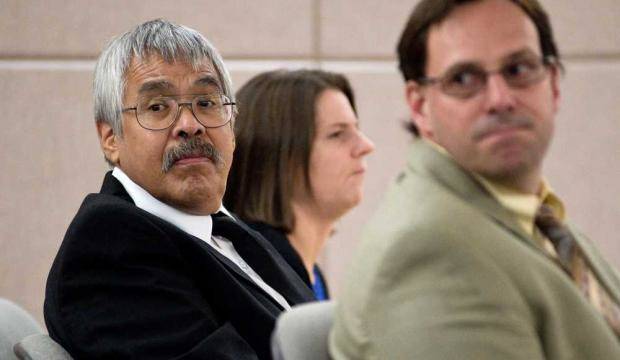A Juneau man convicted of second-degree sexual assault in 2013 — for abusing a younger family member while she was sleeping — has lost an appeal to overturn his conviction.
Frank W. Lee did, however, win a challenge to probation conditions that, the appellate court ruled, were either factually unsupported or unconstitutionally vague.
According to a memorandum opinion filed in the Court of Appeals on Friday, Lee appealed his conviction, arguing Superior Court Judge Louis Menendez, prohibited Lee’s attorney from introducing evidence of the alleged victim’s bias.
During the trial, prosecutors accused Lee of assaulting the victim as she was sleeping at Lee’s apartment during his 60th birthday celebration. The woman testified at trial she awoke during the assault, and it was reported to police shortly afterward.
The state’s case largely hinged on incriminating statements police obtained from Lee in a phone call they recorded the day after the incident, the opinion by Chief Judge David Mannheimer stated. Police were able to record the call without Lee’s knowledge with the authorization of a Glass warrant.
Lee’s defense attorney, Assistant Public Defender Eric Hedland, wanted to question the victim as to whether family members had been threatening to report her to the Office of Children’s Services for neglect of her own child. His theory was that she concocted the story of sexual assault so that her family would feel sorry for her and drop any thought of reporting her to OCS. Menendez, however, ruled that the proposed evidence was irrelevant, or that it was too prejudicial to be admitted.
“At first blush, this ruling is problematic,” Mannheimer states, adding that if the victim had a motive for fabricating a claim against Lee, that motive clearly would be relevant.
But, Mannheimer goes on to state, Menendez based his ruling on Hedland’s failure to articulate a good-faith basis for his underlying factual premise: the assertion that the victim was afraid she would be turned in to OCS. The woman testified that she was afraid OCS would get involved if she reported the assault; there was no evidence anyone threatened to report her.
“Given that (Hedland’s) offer of proof apparently rested on unsupported speculation, the trial judge could reasonably conclude (his) proposed impeachment had little relevance and great potential for unfair prejudice,” Mannheimer wrote. “Moreover, even assuming that the trial judge should have allowed the defense attorney to question (the woman) on this matter, we conclude that any error was harmless beyond a reasonable doubt.”
Mannheimer noted that the jury heard the recording made of the phone call between Lee and the victim, in which he repeatedly apologized and expressly acknowledged the sexual assault that occurred.
Lee subsequently was sentenced to 11 years (three years suspended) and 10 years probation.
Lee also challenged four separate conditions of probation: to not have contact with minors under 16; not to possess sexually explicit material; search and seizure terms for sexually explicit material; and to inform all persons with whom he has a significant relationship, or with whom he is closely affiliated, of his sexual assault conviction.
The probation condition prohibiting Lee from associating with minors was reversed as having no factual basis, because his case did not involve sex with a minor. The other three conditions were vacated as being unconstitutionally vague.
Contact reporter Liz Kellar at 523-2246 or liz.kellar@juneauempire.com.

